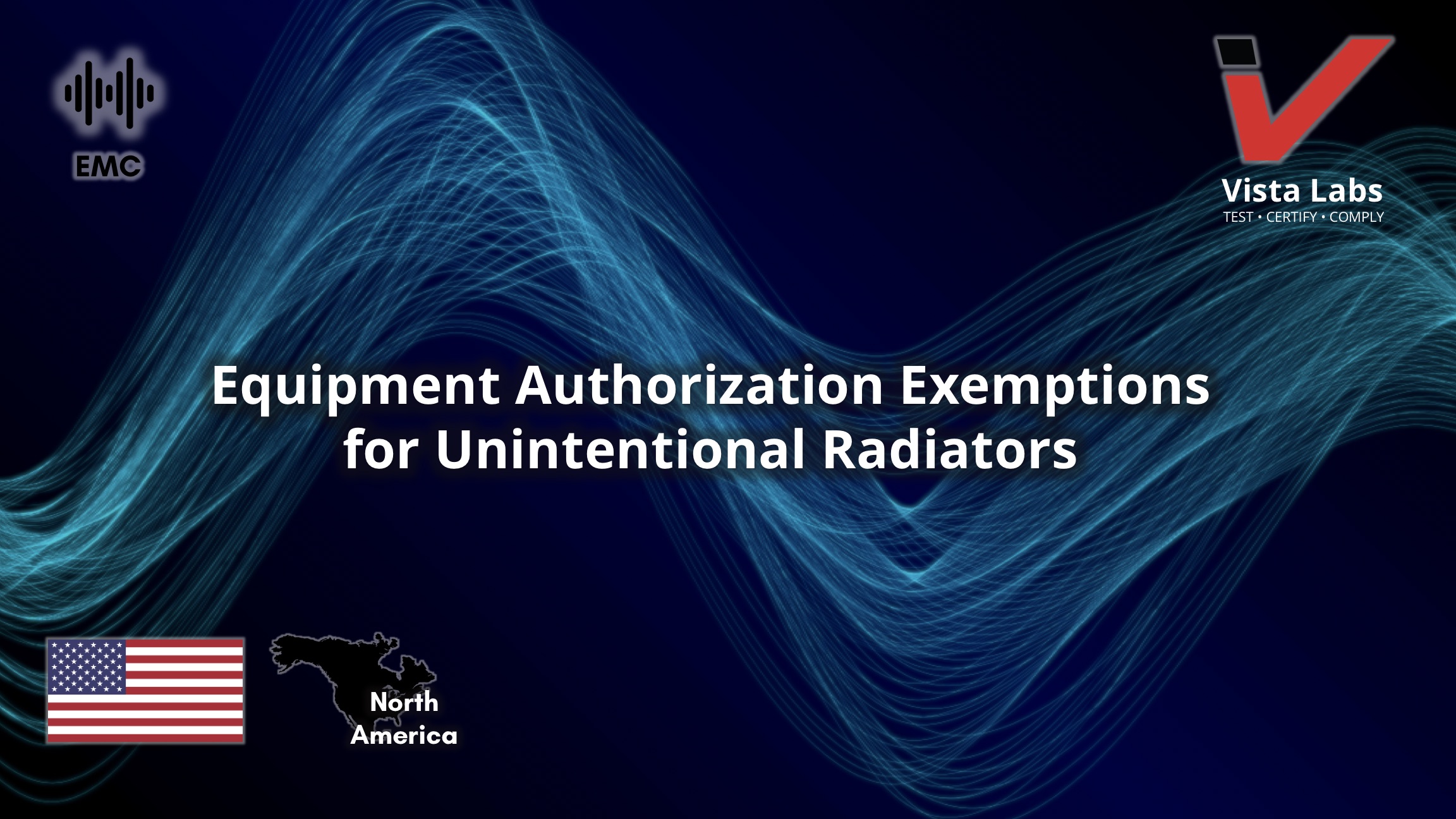The Federal Communications Commission (FCC) of the United States released updated guidance for identifying unintentional radiators under Part 15 that are exempt from equipment authorization.
This provides guidance on FCC rules for certain types of radio-frequency (RF) devices that are exempt from demonstrating compliance under one of the equipment authorization procedures (SDoC or Certification), but are still regulated under the FCC’s Part 15 general conditions of operation.
In other words, if the exempt equipment causes interference to other radio services, the operator of the equipment must stop operating the equipment after receiving notification from the FCC, and eliminate the interference.
There are three categories of devices that are exempt from an equipment authorization:
- Incidental radiators
- Unintentional radiators exempt under Section 15.103 and
- Subassemblies (exempt under Section 15.101)
Incidental Radiator
An incidental radiator (defined in Section 15.3(n)) is a type of electrical equipment that is not designed to use, generate, or emit RF energy. However, such equipment might produce radio-frequency emissions because of normal operation that can cause interference.
Examples of incidental radiator are such as elevator motors, household appliances, dimmer switches, pool pumps, etc.
Unintentional Radiator
Unintentional radiators are digital devices that use digital techniques. FCC Part 15.103 provides an exemption for certain types of digital devices, but this exemption only applies to digital logic in products, such as kitchen appliances (Digital logic used in FCC Part 15.103 (d)) or automotive electronics (FCC Part 15.103 (a)) can be exempted.
However, many modern products may also contain other functions, such as Bluetooth or Wi-Fi transmitters (for example, intentional emitters defined in FCC Part 15.3 (o)), and the intentional radiator function does not meet any FCC Part 15.103 exemption conditions, and need to be authorized following the certification procedure (see FCC Part15.103(i)).
Section 15.103 provides the list of devices are exempt from an equipment authorization, this includes:
- Digital devices used exclusively in any transportation vehicle, including motor vehicles, aircraft, and watercraft.
- Digital devices used exclusively as electronic control systems, or as power systems, by public utilities or in industrial plants.
- Digital devices used exclusively as industrial test equipment, commercial test equipment, or medical test equipment.
- Digital devices used exclusively in-home appliances.
- Specialized medical digital devices, generally used at the direction of or under the supervision of a licensed health care practitioner, whether used in a patient's home or a health care facility.
- Digital devices that have a power consumption of 6 nW or less, such as digital watches and solar calculators.
- Joystick or mouse controllers, or similar devices, used with digital devices, but that contain only non-digital circuitry or a simple circuit to convert a signal to the format required (such as an integrated circuit for analog-to-digital (A/D) conversion).
- Digital devices that do not generate or use frequencies above 1.705 MHz and do not operate while connected through a power cord to the AC power lines or do not operate while being charged are exempt.
Subassemblies
Digital device subassemblies are circuit boards, integrated circuit chips, and other components that are completely internal to a product that do not constitute a final product, are examples of subassemblies.
While subassemblies are not directly subject to FCC technical standards or equipment authorization requirements, manufactures of subassemblies should design their subassemblies so that the final product will comply with the FCC’s technical standards.
In the latest revision of this document, KDB 772105 D01 Exempt Devices v01r01, there was an addition to exempt digital devices in household cleaning equipment to include dishwashing equipment.



